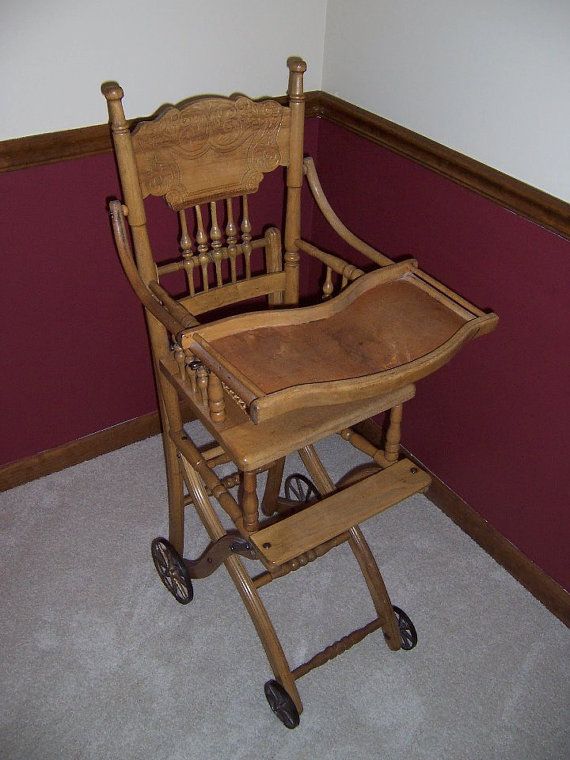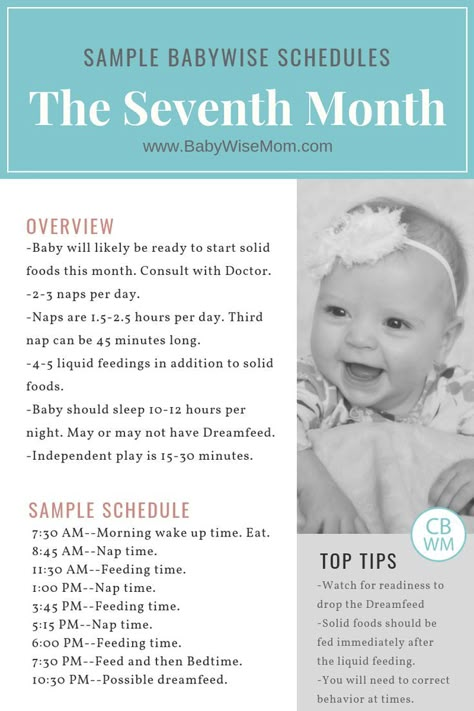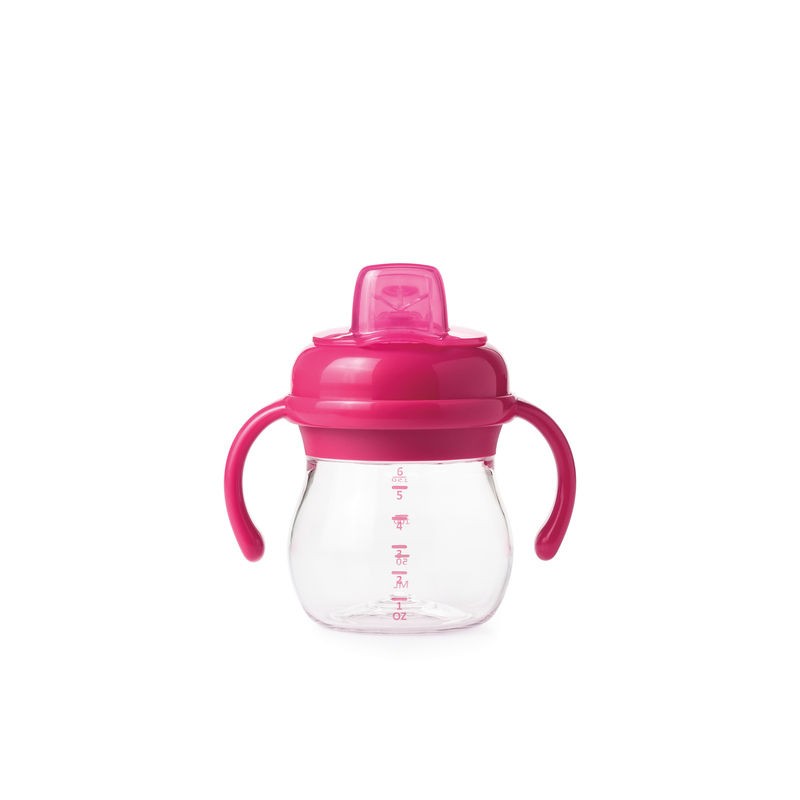Weaning a baby from night feedings
How and when to wean your baby off of night feedings
Wondering when to wean your baby off the bottle or breast at night? Most babies can make it through the night without eating when they're 6 months old. You may be able to start night weaning your baby when they're 4 months old, or you may choose to wait until later. The key is to ensure your baby is getting plenty to eat during the day and right before bedtime. You can then gradually cut back on the amount of breast milk or formula and the number of times you feed your baby at night.
Can you hardly wait for your baby to sleep through the night? Fortunately, that milestone may be closer than you think. Many babies are able to sleep for at least six hours at a stretch when they're 3 months old, or weigh 12 to 13 pounds. However, some babies take longer: Roughly one quarter aren't sleeping six hours overnight by the time they hit their first birthday.
Babies wake during the night for many reasons, but notably because they're hungry. In the early months, babies need to eat every few hours, including through the night. Gradually, however, babies need to eat less and less at night – until by 6 months of age (possibly sooner or later), your baby may quit nighttime feedings and go up to 12 hours without waking to eat.
Sometimes babies self-wean from night feedings with no help from you – they'll just sleep through the night suddenly and never look back. But sometimes you have to nudge them, especially if they're down to one nighttime feeding they just aren't dropping.
Night weaning your baby means ensuring they get enough to eat during the day so they don't need to wake at night to eat. Here's how to get started.
When will my baby be ready for night weaning?
This varies, but somewhere between the ages of 4 and 6 months, most babies get enough calories during the day to sustain them for five or six hours at night.
It's not unusual for younger babies to sleep for much longer stretches without needing to eat – or for older ones to continue waking up to eat. Even if your baby doesn't need to eat in the middle of the night, they may still wake up wanting to. Babies who are used to eating several times a night tend to wake up out of habit, and it can take time to change this routine.
Even if your baby doesn't need to eat in the middle of the night, they may still wake up wanting to. Babies who are used to eating several times a night tend to wake up out of habit, and it can take time to change this routine.
If you've recently gone back to work and are less available during the day, your baby may want to nurse or take a bottle at night as a way of reconnecting with you. And you may notice that your baby wakes up more often when they're teething, if they catch a cold, or when they're mastering a developmental milestone.
For all these reasons, it's helpful to approach the weaning process gradually and gently. Keep in mind that your baby is still young and has a tremendous need for comfort, closeness, and reassurance – particularly from you.
Should I start night weaning my baby?
Many experts recommend night weaning around the time babies are 6 months old, because at that point most babies don't physically need to eat at night.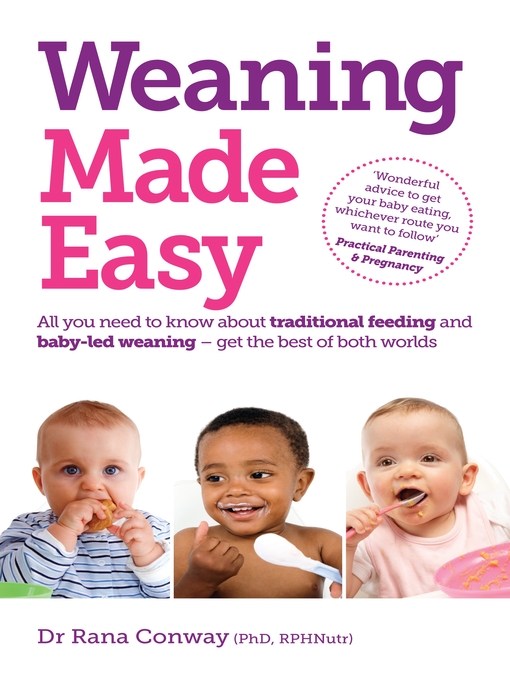 At this age, most babies wake to eat out of habit. And if you do wait to night wean your baby when they're older, know that it can be more challenging to wean a toddler off of night feedings. But the timeline isn't set in stone: You can start trying to get your baby to sleep longer stretches between feedings as early as 4 months of age, or much later than 6 months old.
At this age, most babies wake to eat out of habit. And if you do wait to night wean your baby when they're older, know that it can be more challenging to wean a toddler off of night feedings. But the timeline isn't set in stone: You can start trying to get your baby to sleep longer stretches between feedings as early as 4 months of age, or much later than 6 months old.
Ultimately, it's your choice whether to night wean or not. It's hard to maintain your own health and well-being if you're chronically sleep deprived. The decision to end your baby's night feedings depends in part on how they're affecting you.
If you enjoy nursing or giving a bottle to your baby at night, you can continue until your baby eventually quits on their own. On the other hand, if you find yourself feeling grumpy and exhausted, it may be time.
Keep in mind that your baby's sleep and nutritional needs may vary if they aren't gaining weight as expected or if they were born prematurely. If you're not sure whether your baby's ready for night weaning, talk to your child's doctor. The doctor can help you sort through any issues and help you make your decision based on how your baby's growing.
The doctor can help you sort through any issues and help you make your decision based on how your baby's growing.
How to wean your baby off of night feedings
Once your baby is ready to give up night feedings, try the following techniques:
- Make sure your baby gets plenty to eat throughout the day. As your baby grows and becomes more active, they may not want to stop to nurse or take a bottle during the day, and they may try to make up for it at night. To make sure they get enough to eat, take scheduled breaks during the day for a quiet bottle or nursing session in a place with no distractions. (If you're not sure that your child is eating enough, check their growth by having them weighed at the doctor's office.)
- Start the night weaning process slowly and gradually. Nurse your baby for a shorter period of time on each breast or give them a smaller amount of breast milk or formula in their bottle when they wake at night. Try to prolong the intervals between feedings by patting and comforting your baby back to sleep.

- Offer extra feedings in the evening. If your baby goes to bed with a full tummy, they're less likely to wake up hungry in the middle of the night.
- Give a "dream feed." After your baby's already asleep – say at 11 p.m. or so – you may want to wake your baby for a final feeding before you go to bed yourself.
- Avoid night weaning during times of transition. For example, wait if you're just about to return to work or take a family vacation. If you've recently become less available during the day, make sure to give your baby extra cuddle time when you're together, so they'll feel more connected and be less likely to seek comfort in the middle of the night.
- Gradually eliminate feedings, one at a time. Gently soothe and comfort your baby when they wake up, and explain that it's time to sleep, not eat.
- Keep any feedings you do at night short and sweet. That way your baby won't wake to eat just because they've come to expect late-night cuddles.

- Consider sleep training. If your baby seems to eat plenty during the day but still wakes at night, it may not be because they're hungry but because they're used to it. At this point, you may want to consider baby sleep training to help your little one learn to self-soothe back to sleep.
For more help night weaning your baby from a pediatric sleep physician, check out our course, Baby Sleep 101.
Night weaning if you're breastfeeding
Suddenly stopping the frequency of your nighttime nursing sessions can lead to painful engorgement and increased likelihood of developing an infection known as mastitis. That's one more reason it's good to start slow and drop one feeding at a time, so your breasts can get used to your new routine more easily. In the meantime, you may find that you initially need to wake up and pump breast milk during the night to relieve engorgement.
A key to night weaning your baby is making sure they're getting enough to eat during the day. You may find that you need to pump after one or more feedings during the day, then save the additional milk for an extra feeding in the evening. This can help boost your milk supply as well as ensure that your baby fills up before bedtime. As always, you'll know your baby is getting enough to eat if they're gaining weight as expected and having at least six wet diapers during the day.
You may find that you need to pump after one or more feedings during the day, then save the additional milk for an extra feeding in the evening. This can help boost your milk supply as well as ensure that your baby fills up before bedtime. As always, you'll know your baby is getting enough to eat if they're gaining weight as expected and having at least six wet diapers during the day.
Once your baby is around 6 months old, they'll start solids. Breast milk will still be your baby's main source of nutrition, although you may find that they need to breastfeed less as they gradually eat more solid foods.
Night weaning if you're formula feeding
If you're bottle-feeding and ready to night wean your baby, make sure they get enough to eat during the day. By 6 months of age, formula-fed babies need to eat between 6 to 8 ounces (or 180 to 240 mL) per bottle, four to five times every 24 hours.
Once your baby starts solids, formula will still be their main source of nutrition. But with time, solid foods will cover more of your baby's nutritional needs – and you'll eventually start giving your baby fewer bottles with slightly more formula in each. The bedtime bottle is usually the last to go, and even once you wean your child off it, you may want to give them a bedtime snack or a cup of milk to help them make it through the night without getting hungry.
But with time, solid foods will cover more of your baby's nutritional needs – and you'll eventually start giving your baby fewer bottles with slightly more formula in each. The bedtime bottle is usually the last to go, and even once you wean your child off it, you may want to give them a bedtime snack or a cup of milk to help them make it through the night without getting hungry.
Learn more:
- Baby sleep 101 virtual course
Night Weaning 101 (Help your baby or toddler sleep all night!)
Stopping night feedings can be an important milestone for your baby or toddler—and mean better shuteye for them and you. We’ve got all the info you need to consider when night weaning, plus strategies on how to do it successfully with minimal tears.
Night WeaningWhen your baby is a newborn, you’re used to them waking up several times a night to nurse or take a bottle. But, as they grow, their nutritional needs change and it’s okay to cut back and/or eliminate feeds throughout the night.
However, by this point, most babies are used to waking up several times a night and eating, so getting them to a place where they’ll go at least 7 to 8 hours without one can be a bit of a process. The good news? Alicia Birdsong, a certified pediatric sleep consultant and founder of Hush Little Birdie Pediatric Sleep Consulting is here to walk you through how to do it.
TIP: We’re going to share tips on night weaning both babies and toddlers since there’s no one right age to do this.
When to Wean“So first thing when it comes to night weaning, I think it’s important to talk about when it’s nutritionally appropriate to night wean,” says Birdsong. This is something you should talk to your pediatrician about, but typically babies between the ages of six and eight months are ready to go through the night without eating.
“It’s sometimes a little younger, or a little older,” adds Birdsong, “but this seems to be the average age to night wean. ” One of the biggest indicators you can look for is a child doubling his or her birth weight, which tends to correlate with not needing to eat at night. Other clues that it might be time to wean are if your baby is having trouble getting back to sleep after feeds, or is waking at other times of night when it’s not time to eat.
” One of the biggest indicators you can look for is a child doubling his or her birth weight, which tends to correlate with not needing to eat at night. Other clues that it might be time to wean are if your baby is having trouble getting back to sleep after feeds, or is waking at other times of night when it’s not time to eat.
Learn to
Promote Independent SleepThe thing with night weaning is that it’s often not just about eating, it’s about the fact that your baby is used to either nursing or having a bottle to fall asleep initially and get himself back to sleep throughout the night. If you’re not ready to teach your child to fall asleep on their own, explains Birdsong, you can switch eating with another sleep association like rocking to sleep.
However, “if you’re ready to help them fall asleep independently without any assistance from you, that is likely going to result in better quality sleep,” adds Birdsong. “If you help them learn how to fall asleep independently then it sets the stage for them to be able to connect their sleep cycles and stay asleep longer. ”
”
There are many methods for helping kids fall asleep on their own—you can checkout Birdsong’s Instagram for more advice-—but the part that is related to weaning is really making sure that your child is not dozing off while eating. This might mean moving nursing or the bottle feed to the beginning of the bedtime routine—with the lights on!—and then doing a book or a song or something after that before putting your child in the crib.
(If you nurse, you might even want to have your partner take over that second half of bedtime so that your child is not expecting you to feed him to sleep.)
How to
Cut Back on FeedingsIt’s important that you get the bedtime routine on track, because however your child is falling asleep at bedtime will also be how they’re expecting to get back to sleep during the night. But, beyond that, you obviously have to deal with the actual issue of feedings. Once you’ve established that your child is ready to night wean, you may choose to go cold turkey and remove the feeds altogether.
“If you would like to do something more gradual, though, you can still offer a night feed but slowly adjust how long the feed lasts,” says Birdsong. So, for example, if you typically nurse for 6 minutes, you can cut that down by a minute every few days until the feedings taper off. (Same works for bottle feeding, just cut down the amount of formula you offer.)
If you’re also working on your child’s independent sleep routine, once you remove that night feeding anytime they wake up, you should handle it with whatever method you’ve decided to use at the start of bedtime.
“The more consistent you are, the easier it’s going to be for them to learn a different way of doing things,” urges Birdsong.
A Note on Co-SleepingCo-sleeping can pose extra challenges when night weaning. “It may be really hard if you’re right there, and your baby is used to nursing and you’re telling him or her no…especially in the middle of the night when they’re tired,” explains Birdsong. The solution? You might need to head to the guest room for a few evenings and let your child and your partner sleep together without you.
The solution? You might need to head to the guest room for a few evenings and let your child and your partner sleep together without you.
“If you’re not physically not present for, let’s say the first 4 to 5 nights, then the thought of nursing won’t be nearly as prevalent and your partner can offer other forms of comfort.” Depending on your child’s age, this could include snuggles, a stuffed animal, or even a pacifier.
How long does it take to night wean?
It depends. Once your child is ready to drop their night feeds, you can choose to go cold turkey and stop nursing or giving bottles during sleeping hours altogether. (If you’re nursing, though, you may need to wake up to pump for a few days while your body adjusts.) However, many parents choose to cut down the number of feeds and amount of milk or formula offered gradually, which can take a few weeks.
When can you stop night feedings?
Nutritionally speaking, most babies can do without night feedings between 6 and 8 months of age or once they’ve doubled their birth weight. But it’s important to ask your pediatrician for the go-ahead before eliminating these nursing sessions or bottles.
But it’s important to ask your pediatrician for the go-ahead before eliminating these nursing sessions or bottles.
How do I stop nursing to sleep?
You’ll need to get your baby out of the habit of falling asleep while nursing, and this may mean adjusting your bedtime routine. One easy way to do this is to simply move nursing to the beginning of the routine. This may mean nursing first, with the lights on, and then getting them into their sleep sack and reading a book or singing a song after that, for example. Another trick: Have your partner take over the rest of bedtime after nursing, to help further separate the act of nursing from falling asleep.
How to Night Wean a Toddler
Once kids are over 12 months, it can be harder to wean them at night simply because they’ve been in the habit of waking for a longer period of time. It can be fairly frustrating to cut down on feeds slowly for this age, as Amy found when she night weaned her third kiddo at 14 months. The same advice as above applies, though the kids may have more feelings about it.
The same advice as above applies, though the kids may have more feelings about it.
“After three nights of trying to gradually reduce the duration of our feeds, I knew it was not working. My let down would barely be over and the timer was up and the baby was confused about why I was only giving him a little milk,” she explains. “I worked with Alicia to develop a plan to cut the night feedings cold turkey and after two nights, he was sleeping through the night.” Yes, that may mean crying temporarily, but Amy found that the clear rules were much easier for everyone to understand.
The goal of night weaning—once the child is nutritionally able to go through the night without breastmilk or formula—is to break the habit of waking up during the night. That can take 2 nights or a week, and it may have the benefit of making the kids be hungrier for milk or food during the day. It’s a process, so be gentle with yourself through the transition.
Best Tips for Night Weaning
- Wait to night wean until the child is nutritionally ready for the milestone.
 This typically happens when babies are between the ages of six and eight months.
This typically happens when babies are between the ages of six and eight months. - Work on disassociating sleep and eating by giving the last feeding of the day with the lights on and adding a book or a song after the feeding. The goal is to put baby down awake so when they wake up during the night, they will be able to go back to sleep without a feeding.
- Go gradual by shortening the duration of feeds by a minute (or decrease ounces of formula) each night until you get down to zero, and offer alternative comfort during wake ups like snuggles or a pacifier.
- Go cold turkey by deciding on a day when night feedings will end and say goodnight to the little and leave them be until morning.
- Remember that you may need to pump a small amount for a few nights to help your body adjust (but don’t pump too much or you will tell your body that it needs to be producing milk at that time—aim for just enough to give you relief).
- A toddler who feeds during the night may have a decreased hunger for daytime milk and solids, so cutting out the night feeds can help move that intake to the daytime.

- If you co-sleep and have been in the habit of nursing to sleep and back to sleep, it may help to sleep in another room for a few nights as you transition.
- Whatever approach you take, be consistent.
- Discuss any concerns you have with your pediatrician.
Find our full guide to Weaning Toddlers here. And reach out to Alicia for additional personalized support. You can take $20 off a package with the code yummytoddlerfood.
Night feeding weaning
Weaning from night feeds and uninterrupted sleep throughout the night is the dream of many new parents. However, kids have completely different plans in this regard. Many of them continue to wake up to eat or drink, even at 3 years old. We understand why this happens and whether it is possible to wean a child to eat at night.
Why night feedings are needed
Night feedings are not a whim, but a necessity for the normal development of the baby. First of all, they are needed by the child, and then by the mother. The main reasons why a child needs to wake up at night include the following:
The main reasons why a child needs to wake up at night include the following:
- physiological immaturity. Compared to adults, children's metabolism is very fast. This is due to the active growth and development of the baby. In addition, both formula and breast milk are absorbed very quickly - on average, in 2-4 hours.
- Features of lactation. The amount of milk in the mother is regulated precisely by feeding at night, since the hormone prolactin is actively produced at this time of day. If a woman wants to breastfeed a baby, at least one nightly application is necessary.
- evolutionary mechanisms. According to one hypothesis, night waking is an evolutionary mechanism that protects the baby from sudden infant death syndrome.
- Compensatory. If the mother removes daytime feeds, the baby may begin to wake up more often at night to compensate for the lack of daytime feedings. This is more relevant for children on breastfeeding one year old and older.
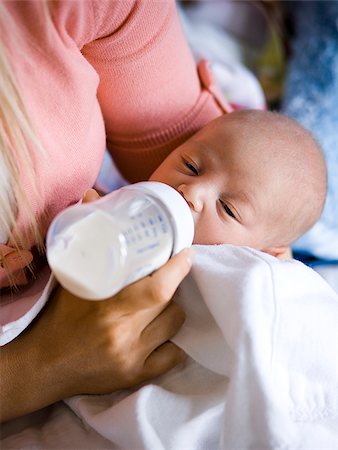
If night waking does not cause inconvenience to mother and baby, then there is no need to specially clean them. You can wait until the baby's nervous system matures and he refuses such feedings on his own.
� When the baby is ready to leave night feeds
The ability to sleep through the night without waking up for a night snack develops as the baby's nervous and digestive systems mature. Attempts to reduce nighttime feedings before this point can end in failure, exhaust the mother and cause sleepless nights for the whole family.
The following terms are considered physiological:
| Type of feeding | When do night feeds end? |
| breast | A breastfed infant stops eating at night around 18–24 months of age. |
| mixed | Depends on what kind of food (formula or breast milk) prevails in the baby's diet. |
| artificial | Formula is considered a heavier product, so formula-fed babies may stop eating at night as early as 9-12 months. |
Some babies, whether breastfed or formula-fed or mixed-fed, may start sleeping without waking up for nighttime feeds as early as 6 months. If the mother has enough milk, and the baby is gaining weight normally, you do not need to specifically wake the baby to feed him.
Important! Night feedings are the key to successful lactation. If the baby of the first months of life does not wake up at night, you need to offer the breast to a sleepy baby. This stimulates the production of milk and will help to avoid problems with its quantity.
How to stop feeding your baby at night on EW
It is much easier to remove night feedings from a baby on artificial feeding than on breastfeeding. This is due to the fact that a baby on IV immediately gets used to the schedule, and with a greater nutritional value of the mixture, and less difficulty with its replacement. On average, babies who eat formula wake up only 2-3 times per night, so it will not be difficult to refuse such a number of feedings.
On average, babies who eat formula wake up only 2-3 times per night, so it will not be difficult to refuse such a number of feedings.
However, weaning from nighttime eating should begin no earlier than 6 months. By this age, the brain of children in general is ready to sleep without awakening from 6 to 8 hours. What can be done to reduce the number of feedings?
- If the mother practices co-sleeping, you should not combine moving the child to the crib and accustoming to uninterrupted sleep at night. It is better to reduce the number of wakings first, and then move the baby to your bed.
- If the baby has entered a clear mode, you can gradually increase the intervals between night feedings. You can move them no more than half an hour at a time.
- When the baby asks for food at night, offer him water first and only then formula. Perhaps he wakes up from thirst, not from hunger. This approach will help increase the intervals between feedings.

- After a year, a hearty dinner helps to improve sleep. Feed your baby porridge or porridge with meat 2-3 hours before bedtime. Such food is digested for a long time and will help the baby sleep better.
It is important to remember that the reduction in feeding should not be accompanied by tears and tantrums of the baby. Restless night sleep and discomfort will cause the baby to wake up more often.
Weaning from night feeds should not be a problem for the baby and other family members. Our doctors will remotely advise on the features of children's sleep and help you choose the right moment for weaning from night feedings.
How to remove night feedings with breastfeeding
The regimen of children who are exclusively breastfed is different from the regimen of children who are fully or partially artificially fed. For children on IV, night feedings, rather, are a consequence of the characteristics of the child's psyche and metabolism. For children on breastfeeding, they are rather a necessity.
For children on breastfeeding, they are rather a necessity.
It is at night that the hormone prolactin is produced, which regulates the production of milk in the mother. If you do not feed your baby at night or leave such feedings too early, this will directly affect the amount of milk and, as a result, the development and growth of the baby.
It is believed that during weaning, night feedings are the last to stop. However, you can reduce the number of nightly attachments before the mother decides to complete breastfeeding. What can be done for this?
- If the mother practices co-sleeping, moving the baby to her crib will help reduce the number of nightly attachments. At first, you can put a baby bed with the side removed to the parent one and shift the baby after he falls asleep. Then the side rises, and the bed moves away.
- After a year, giving up or reducing the number of night feedings helps a hearty dinner and a bowl of water instead of breastfeeding at night.
 You can also give kefir or a mixture at night.
You can also give kefir or a mixture at night. - The number of nightly attachments is also affected by daytime feeding. If the mother cancels too many daytime attachments and severely restricts the baby, he can compensate for the lack at night. Therefore, if the mother does not plan to completely cancel breastfeeding, it is better to allow the toddler to apply during the day.
If the mother does not plan to stop breastfeeding in the near future, then it is better to postpone weaning from night feedings to a more suitable time for this and wait for the moment when the baby himself refuses nightly feedings. After a year, you can teach the child self-attachment. In this case, neither the baby nor the mother practically wakes up at night.
Read also What kind of breastfeeding is considered prolonged
FAQ
How many times does the child eat at night?
+
The number of night feedings depends on the age and type of feeding. Formula-fed babies wake up 2-3 times a night on average. Breastfed babies may wake up more often.
Formula-fed babies wake up 2-3 times a night on average. Breastfed babies may wake up more often.
When do children wake up at night?
+
The baby's brain is not adapted to a long night's sleep. This is believed to be an evolutionary mechanism that protects infants from sudden infant death syndrome. The child begins to sleep more than 6 hours in a row after a year, and all night - closer to three.
What can I do to stop my child from eating at night?
+
You can reduce the number of nightly feedings by moving the baby to a separate bed, starting to feed a denser dinner and gradually increasing the intervals between nightly attachments.
When should a baby be weaned?
+
The World Health Organization recommends breastfeeding or formula feeding until two years of age if it is comfortable for both mother and baby. If a woman decides to wean the baby from the breast earlier, you need to replace the breast mixture.
If a woman decides to wean the baby from the breast earlier, you need to replace the breast mixture.
Is it necessary to wean the baby from the breast if he does not sleep well?
+
Weaning does not guarantee that the baby will sleep through the night. For this to happen, his nervous system must mature. Weaning, especially through tears, can cause restless sleep and frequent waking.
Expert opinion
Night feedings are necessary for the normal growth and development of the child. On average, children self-refuse by the age of 9-24 months. However, this does not mean that the child stops waking up at night. The brain fully matures for this only at the age of 3 years. To wean a child from waking up at night, you need to feed him more densely before bedtime, move him to his crib and offer water at night instead of breast or formula.
We publish only verified information
Article author
Pruzhinin Mark Yulievich pediatrician
Experience 30 years
Consultations 1572
Articles 104
An experienced pediatrician with extensive experience and clinical experience in various medical organizations in the field of general pediatrics, resuscitation and anesthesiology and neuroinfection.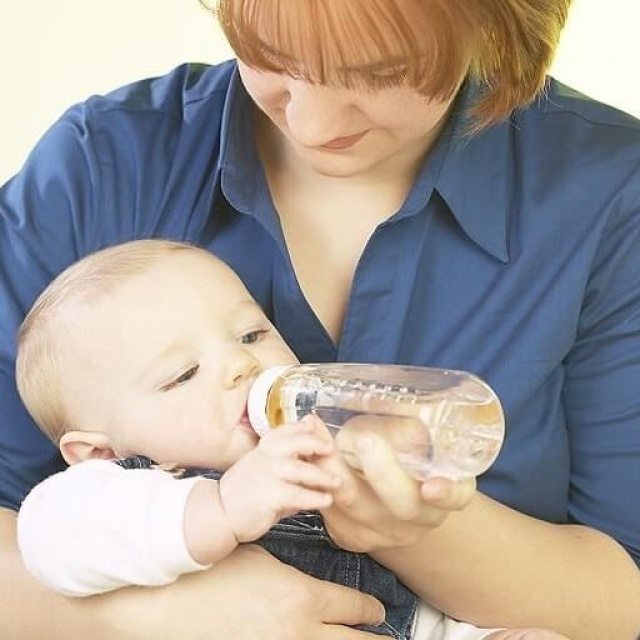 Works with leading experts, attends international and Russian conferences.
Works with leading experts, attends international and Russian conferences. How to wean your child from night feeding: a step-by-step guide from a pediatrician
It seems that the baby, bravely tasting broccoli, will very soon be able to do without nighttime snacks. But everything has its time: first of all, we deal with the schedule of daily meals, build a regimen. And only after that we begin the process of smoothly weaning the child from night feedings.
Until what age to keep night feedings
Eating at night is a physiological need for children under one year old. It contributes to the harmonious growth of the child and provides his mother with stable lactation, which is important when it comes to breastfeeding. Artificial babies also need to have round-the-clock access to nutrients in order to develop properly.
The older children get, the less often they wake up at night to satisfy their hunger: for newborns, the norm is up to 3-4 awakenings per night, for one-year-olds, there are usually fewer feedings (1). However, some scientists note that at the age of 3-6 months, many children stop waking up at night, as there are fewer feedings, and the total duration of sleep is reduced to 12-15 hours (2). Of course, this process is different for every baby, so watch your baby carefully and don't hesitate to ask your pediatrician for advice if you're worried about something.
However, some scientists note that at the age of 3-6 months, many children stop waking up at night, as there are fewer feedings, and the total duration of sleep is reduced to 12-15 hours (2). Of course, this process is different for every baby, so watch your baby carefully and don't hesitate to ask your pediatrician for advice if you're worried about something.
It is worth it to postpone with the refusal of night feeding if the child:
| is poorly gaining weight | due to teeth teething | is sick |
| experiences strong emotional experiences | ; | "walks" during the day |
Night feedings and breastfeeding
The World Health Organization recommends breastfeeding children up to two years of age (3). There is no contradiction: reducing nightly attachments by no means means a complete rejection of breastfeeding if the mother does not want it.
Normalization of sleep - this is what we are talking about in this case - is necessary when chronic fatigue and lack of sleep become a problem for parents.
“The absence of night feedings does not mean that the baby is ready to wean, and vice versa,” says Ekaterina Zayets, lactation consultant, pediatrician, leading courses for pregnant and lactating mothers . - Everything is individual: there are families in which there are several feedings during the day, and there are no night feedings from eight months.
Night feeds and bottle feeding
It is believed that bottle fed babies are much easier to wean from eating at night: they do not have the habit of falling asleep on the chest. But, again, everything is individual. Some children continue to demand a bottle of formula, and their peers easily part with nightly attachments and sleep sweetly until the morning.
What to do to wean a child from night feedings
You need to understand that abrupt cancellation can be a big stress for the baby. At night, it will not be possible to keep him busy with a game, to bring his grandmother to help. Therefore, you need to prepare for the fact that this can be a difficult task that will take time.
Therefore, you need to prepare for the fact that this can be a difficult task that will take time.
Weaning in stages
Observe your child's behavior before reducing nighttime feedings.
What you should pay attention to:
- how many times during the night the baby wakes up;
- which awakenings are associated with hunger and which are not;
- Is the quality of sleep different when the baby sleeps in his own crib, separate from you;
- whether the baby can sleep without formula or breastfeeding.
After analyzing this information - and you will definitely see patterns - smoothly start working on reducing nighttime feedings.
We go to sleep full
A child who has dinner at six in the evening will definitely wake up hungry closer to midnight. Include a snack half an hour before bedtime in your diet and you will feel the difference. Feed your baby something light and nutritious, such as fermented milk products.
Putting away the first feedings
First, say goodbye to the feedings that fall during the first hours of sleep. At this time, the baby still does not have time to get hungry, so it is enough just to rock him without additional manipulations.
Less food at night
Try to organize nightly feedings so that the baby spends less time on the breast. For artificial children, try to reduce the concentration of the portion.
During the day - more calories
Night feedings are removed from children who are familiar with complementary foods. Make sure your child gets enough "adult" food and water throughout the day. It is also important to build a diet.
Sleep and food separate
Breastfeeding is almost always a key part of the sleep ritual. Incredibly comfortable: the baby eats and immediately falls asleep, without motion sickness and persuasion. But this bundle must be separated if you are determined to regain a good rest. Feed the baby so that he calms down, relaxes, and eventually falls asleep without a breast.
Practicing self-sleep
The easiest way to reduce night feedings is for children who have mastered the skill of self-sleep: they no longer notice the change in sleep phases and wake up less often.
Connecting dad
Dad, as you know, can do anything. Including rocking a baby who woke up in the middle of the night. Probably, at first the process of laying will be delayed, but gradually the child will get used to it.
Photo: pixabay.comTrying separate sleep
Feeding non-stop, in a dream, is a common story for mothers who are unable to get up at night. The child comfortably settles down next to him, finds food himself and, having had enough, falls asleep again. Mom may not even know how many times the baby ate at night. This habit may be the hardest to break, but without separate sleep, night feedings cannot be removed.
One study showed that children who fall asleep on their own in a separate bed sleep better and longer and wake up less often (4).
Water and other tricks
There is an opinion that a child who wakes up at night can be offered water. It will only give a temporary "fake" feeling of satiety and will not replace a baby who really wants to eat, milk or formula. If you see that the child did not wake up from hunger, pour him a drink - water can calm him down (only it should be in a cup, not in a bottle). Do not offer juice or sour milk instead of water - these products contain sugars that can provoke the development of caries, because at night the natural protection of the teeth is reduced (3).
A few more life hacks to help reduce the number of nighttime feedings are related to the organization of children's sleep. Cool and humid air in the room, late bathing, performing "sleep" rituals help children fall asleep faster and sleep better. If you reduce the duration of daytime sleep, it is likely that the child will also sleep better at night.
Starting to remove night feedings, do not expect an immediate result.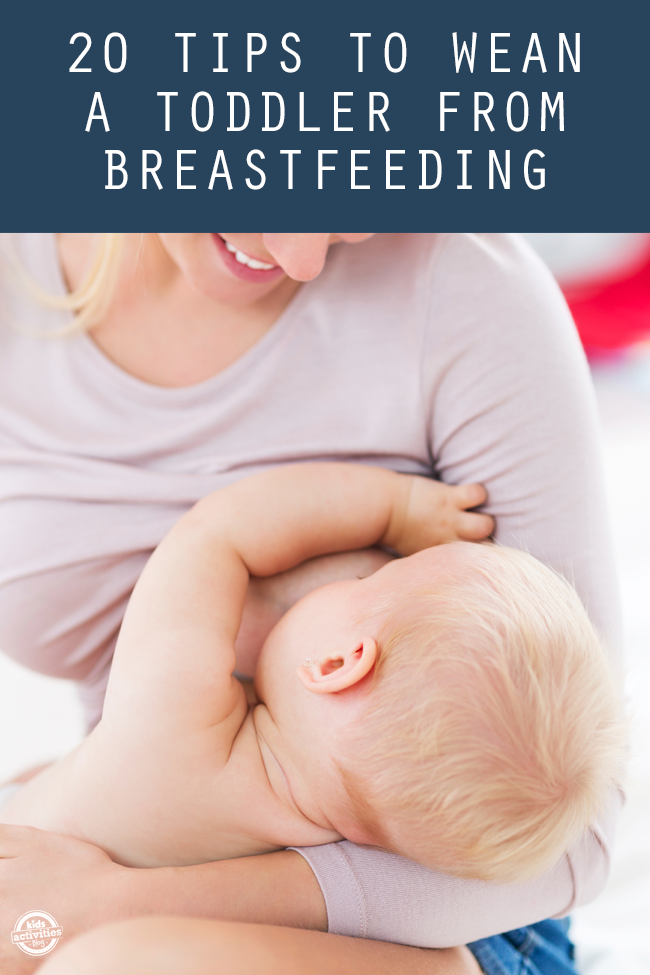 This is a leisurely, careful process filled with love and care for the child. Give your baby even more attention during the day than usual. At some point, he will stop waking you up, the feedings will go away, and you will be able to enjoy a full night's rest.
This is a leisurely, careful process filled with love and care for the child. Give your baby even more attention during the day than usual. At some point, he will stop waking you up, the feedings will go away, and you will be able to enjoy a full night's rest.
Popular Questions and Answers
Ekaterina Zayets, Lactation Consultant, Pediatrician will help answer questions:
How do you know if your baby is ready to stop feeding at night?
Readiness of both is important: mother and child. If we talk about timely weaning, then this is due to the ability of the mother to transfer their communication to another format. Much depends on the state of the mother, on the support of others. All stories that can be stopped only, for example, after two to five years, are about fanaticism. There are children who, with a competent approach, attention and sufficient maternal resource, already at 1.3 years old perfectly outgrow the internal need and may not be applied to the breast.
Mistakes that mothers make when starting to clean up night feeds?
They try to remove them too early, often - they themselves are not mentally prepared for this, without taking into account the peculiarities of the psyche of their child. Sometimes this happens under pressure from others. As a result, we get a neurosis, perhaps in a child.
Everything must be done carefully, with basic knowledge. Ideally, an advanced level is when a mother consults a specialist on her issue (tells how old the child is, how many feedings, etc.). It is optimal to at least read something on this issue, especially if the child is very small - a year and a half. Emotionally, children at this age are not ready for such experiments on the part of the mother.
Many parents fail to understand an important point: if breastfeeding is completely gone (ie, night feeding is the last), you need to build a daily diet, introduce complementary foods correctly and make sure that the baby gets enough liquid. It is with this that mothers most often get consultations, and in rare cases, children can even end up in a hospital with dehydration - and this is no joke.
It is with this that mothers most often get consultations, and in rare cases, children can even end up in a hospital with dehydration - and this is no joke.
Are there any differences in weaning children of different ages from night feedings?
With older children, of course, there is a fundamental difference, because the situation does not depend on the number of feedings, but relies on an individual approach,
All children are different in temperament, it is laid down initially, at birth, we cannot change it. And each child has its own unique mother, who also has her own temperament. Her condition must also be taken into account. It can be a first-born mother who is exhausted, or a first-born mother, but full of strength. Or maybe a mother of many children, in which there is so much energy that she would still feed and feed.
Each case has its own tactics. Sometimes they choose the path of self-weaning - the child is offered to gradually reduce the proportion of feedings himself. And he outgrows his needs, he has enough of everything, and his mother is not exhausted. With age, night feedings are completed - by the age of 2-2.5 with the right actions.
And he outgrows his needs, he has enough of everything, and his mother is not exhausted. With age, night feedings are completed - by the age of 2-2.5 with the right actions.
Advice for mothers whose children after the age of two continue to wake up at night for a snack?
You need to understand what the family needs. If you are generally comfortable and want to continue breastfeeding, continue. If this process is tiring, it is recommended to take a nap during the day, eat well so that calories come in, leave the house - so as not to get hung up on the situation.
It is also important to receive competent information support. Often mothers are afraid of weaning as a fact, but for starters, you can simply reduce the proportion of feedings, and everyone will be fine.
Watch your child's daily diet: 4-5 meals, drink (water is a priority). About a liter of food even with continued breastfeeding plus emotional readiness on the part of mother and baby are good indicators to start weaning, or reduce the proportion of feedings, or complete breastfeeding.

 Age can vary from 9 to 24 months.
Age can vary from 9 to 24 months. 
